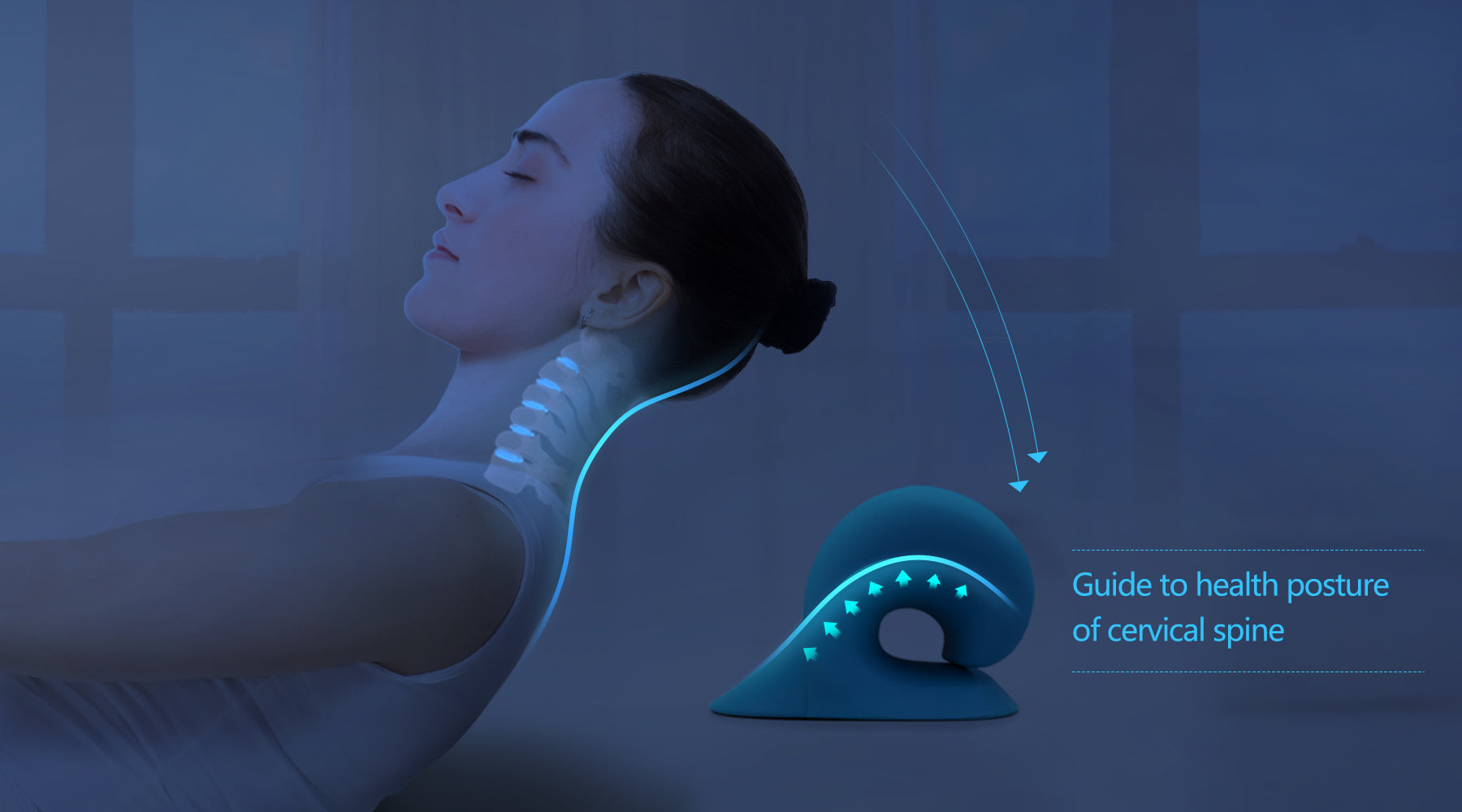Neck Cloud: Ergonomic Design for Maximum Comfort and Discomfort Decrease
Neck Cloud: Ergonomic Design for Maximum Comfort and Discomfort Decrease
Blog Article
The Influence of Stress on Neck Discomfort: Techniques for Minimizing Tension and Discomfort
In today's fast-paced world, it's no trick that anxiety has come to be a prevalent variable in the onset and worsening of neck pain. Join us on a trip to unravel the influence of stress and anxiety on neck discomfort and discover reliable means to minimize discomfort and improve general top quality of life.
Comprehending Stress-Related Neck Pain
Neck discomfort is an usual grievance that can commonly be associated to tension. Stress-related neck pain can show up as stress, tightness, or discomfort in the neck and shoulder area. The connection in between tension and neck pain exists in the body's physiological reaction to stress and anxiety, which can lead to muscular tissue stress and rigidity in the neck muscle mass. Persistent stress can result in consistent neck discomfort and intensify status quo like cervical spondylosis or muscular tissue pressures.

Identifying Common Tension Areas
Often experienced by people under tension, tension areas in the body can provide useful understandings right into the physical indications of emotional pressure. One typical stress location is the neck, where anxiety often manifests literally. Tension migraines, stiff neck muscular tissues, and restricted variety of movement are common signs of stress-related neck stress. The shoulders are an additional typical area where stress gathers. Stress can trigger the muscular tissues in the shoulders to tighten, leading to discomfort and pain. Furthermore, the upper back is susceptible to tension build-up, especially in people that experience chronic tension. Poor position and prolonged resting can exacerbate tension in this location. The jaw is also an usual place for stress-related tension, as lots of people clench their jaw or grind their teeth when worried. Knowing these typical stress areas can assist people recognize the physical indicators of stress and anxiety and take steps to resolve them before they escalate into persistent discomfort or discomfort.
Implementing Leisure Strategies
To efficiently take care of stress-related stress in the body, applying relaxation methods is essential. Leisure techniques are beneficial tools for reducing neck pain brought on by stress and anxiety. Deep breathing workouts can aid relax the mind and relax strained muscle mass in the neck and shoulders (neck cloud). Practicing mindfulness meditation can likewise be useful in relieving stress and anxiety and advertising relaxation. Progressive muscle mass relaxation, where you systematically tense and afterwards relax different muscle teams, can launch built-up tension in the neck area. Additionally, tasks like yoga and tai chi integrate both physical motion and leisure, making them effective techniques for reducing tension and neck pain. Taking normal breaks throughout the day to stretch and take a break can stop muscle stiffness and stress from collecting. By including these leisure techniques into your right here day-to-day regimen, you can assist manage stress and anxiety levels, lower tension in the neck, and ease discomfort connected with stress-induced neck pain.
Incorporating Self-Care Practices
Integrating self-care techniques is necessary for keeping overall wellness and managing stress-related neck discomfort efficiently. Participating in regular physical task, such as mild stretching workouts or yoga, can assist ease stress in the neck and shoulders. Exercising excellent position throughout the day and taking frequent breaks from long term sitting or screen time can likewise protect against stress on the neck muscles.
Additionally, focusing on sufficient rest and establishing a consistent rest routine can add significantly to reducing stress levels and advertising relaxation. Creating a calming going to bed routine, such as reading a book or taking a warm bathroom, can assist prepare the mind and click here for more body for peaceful rest. Furthermore, preserving a balanced diet abundant in nutrients and remaining moistened can sustain overall health and wellness and decrease inflammation that might intensify neck pain.
Including mindfulness methods, such as deep breathing workouts or meditation, can help manage stress and promote leisure. Taking some time for oneself, participating in hobbies, and setting borders to shield individual time are likewise important facets of self-care that can add to minimizing stress and easing neck pain.
Seeking Specialist Assistance
Just how can people properly deal with persistent neck pain that is impacting their day-to-day life and well-being? Looking for professional aid can be an important step in handling and minimizing neck discomfort.
Chiropractors concentrate on back adjustment strategies to improve alignment and lower tension in the neck location. Physical specialists provide targeted exercises and stretches to strengthen muscles, improve adaptability, and boost general neck function. Orthopedic professionals can offer advanced clinical treatments such as injections or surgical my blog options for serious instances of neck pain.
Final Thought

Stress-related neck pain can materialize as tension, stiffness, or discomfort in the neck and shoulder location. The link in between anxiety and neck discomfort exists in the body's physical feedback to stress, which can result in muscle mass stress and rigidity in the neck muscular tissues. Stress frustrations, tight neck muscle mass, and restricted array of movement are usual signs and symptoms of stress-related neck stress. By incorporating these leisure methods right into your everyday regimen, you can assist handle tension degrees, decrease stress in the neck, and alleviate discomfort associated with stress-induced neck pain.

Report this page